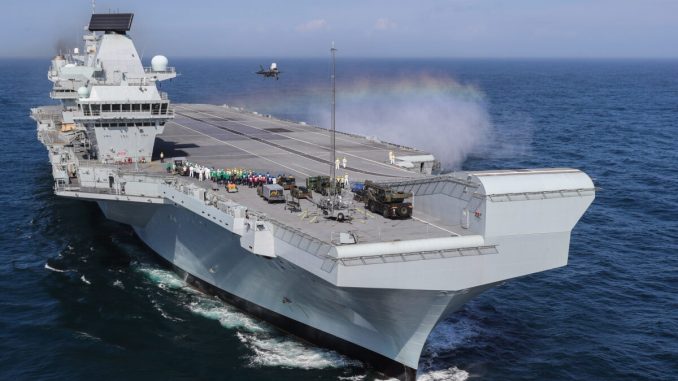
Britain will send a Carrier Strike Group to the Indo-Pacific region next month in a massive show of force aimed at countering the security challenges posed by the Chinese regime.
The Carrier Strike Group, which will be led by the new aircraft carrier HMS Queen Elizabeth, will be the “largest concentration of maritime and air power” in the UK, said the Ministry of Defence (MoD) in a press release.
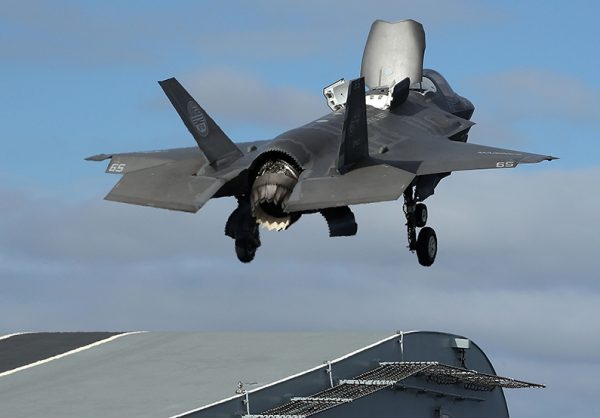
During its 28-week deployment, the Carrier Strike Group will visit more than 40 countries and conduct engagements with Singapore, South Korea, Japan, and India as part of the UK’s “tilt towards the Indo-Pacific region, said the MoD.
Defence Secretary Ben Wallace said: “When our Carrier Strike Group sets sail next month, it will be flying the flag for Global Britain—projecting our influence, signalling our power, engaging with our friends, and reaffirming our commitment to addressing the security challenges of today and tomorrow.
“The entire nation can be proud of the dedicated men and women who for more than six months will demonstrate to the world that the UK is not stepping back but sailing forth to play an active role in shaping the international system of the 21st Century.”
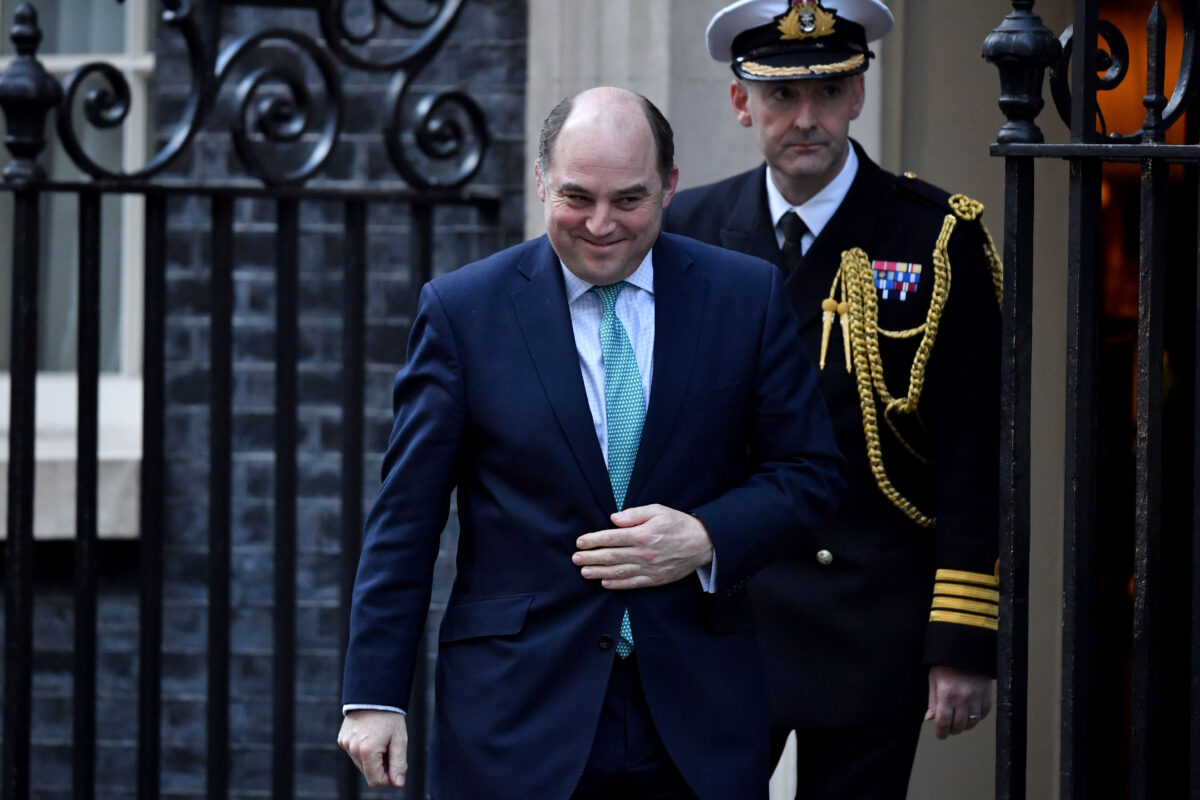
According to the MoD., the Carrier Strike Group will seek to achieve the UK’s goal for “deeper engagement in the Indo-Pacific region in support of shared prosperity and regional stability,” which was set out in the government’s recently published Integrated Review into foreign, defence, security, and development policy.
The review, which was published in March, said the UK will invest in enhanced “China-facing capabilities” and improve its response to “the systemic challenge that it poses to our security, prosperity and values—and those of our allies and partners.”
HMS Queen Elizabeth, the most powerful surface vessel in the Royal Navy’s history, will be carrying eight F-35B Lightning II fast jets of the Royal Air Force, four Wildcat maritime attack helicopters, seven Merlin Mk2 anti-submarine helicopters, and three Merlin Mk4 commando helicopters. A company of Royal Marines Commandos will also be based on the carrier.
The carrier will be joined by a surface fleet of Type 45 destroyers, HMS Defender and HMS Diamond, Type 23 anti-submarine frigates HMS Kent and HMS Richmond, and the Royal Fleet Auxiliary’s RFA Fort Victoria and RFA Tidespring.
A Royal Navy Astute-class submarine armed with Tomahawk cruise missiles will be deployed in support of the surface fleet.
A U.S. destroyer, USS The Sullivans, will sail as part of the Group and providing it with air defence and anti-submarine capabilities. A squadron of 10 F-35B Lightning II aircraft from the U.S. Marine Corps will also be integrated into the fleet.
The Royal Netherlands Navy’s frigate HNLMS Evertsen will be providing further air defence.
Simon Veazey contributed to this report.



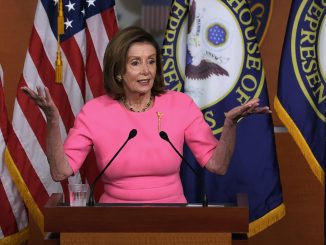
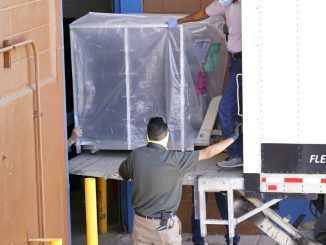
Be the first to comment